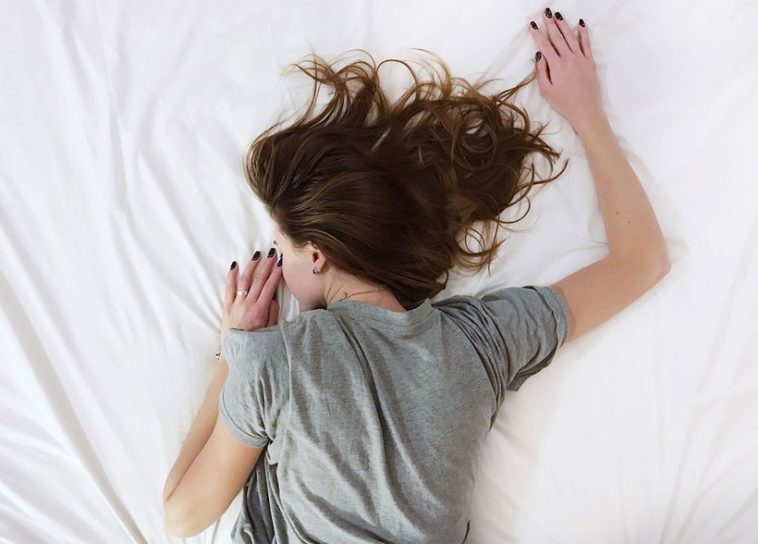- Like
- SHARE
- Digg
- Del
- Tumblr
- VKontakte
- Flattr
- Buffer
- Love This
- Save
- Odnoklassniki
- Meneame
- Blogger
- Amazon
- Yahoo Mail
- Gmail
- AOL
- Newsvine
- HackerNews
- Evernote
- MySpace
- Mail.ru
- Viadeo
- Line
- Comments
- Yummly
- SMS
- Viber
- Telegram
- JOIN
- Skype
- Facebook Messenger
- Kakao
- LiveJournal
- Yammer
- Edgar
- Fintel
- Mix
- Instapaper
- Copy Link
Introduction
Regular exercise has been linked to better sleep in numerous research studies. Individuals who exercise regularly are less likely to suffer from insomnia and sleep problems. The success rate of implementing regular exercise into your daily life is unaffected by age. In addition, people who are more physically active have a lower risk of developing insomnia later in life. It suggests that exercise has a preventive effect on insomnia. Even though we’re probably all aware of the positive effects of exercise on sleep patterns, most people lack the knowledge about exactly how exercise can help you sleep better.
Exercise shifts your core body temperature
Your body temperature rises during exercise and then declines afterward. That decline in temperature is similar to the change in temperature that occurs before you fall asleep. This is when your body cools down in preparation for rest. The similarity of these shifts could indicate to your brain that it’s time to sleep.
Exercising helps with pain
If you experience pain-induced insomnia, you need to find a way to deal with your underlying condition. To get better quality sleep, you need to lessen your pain. Although medication is an obvious choice, it would be far better to find a way to minimize the pain naturally. Luckily, exercising helps with back pain and many other sorts of bone or muscle aches. Of course, before beginning any exercising regimen, consult your primary physician. If you don’t, you may cause an even bigger problem.
Which exercise can help you sleep better?
People who exercise for at least 30 minutes a day may notice an improvement in their sleep quality as quickly as the next night. It won’t take months or years to see a change in most cases. People shouldn’t feel obligated to train for a marathon to improve their sleeping habits. However, they should raise their heart rate and break a sweat here and there. Which exercises are best at helping you sleep better?
Aerobic exercise
Apart from being a great way to get fit, aerobics is something experts recommend daily for many reasons. It’s proven to be the most effective exercise that can help you sleep better. Moderate aerobic exercise, in particular, increases the amount of time you spend in deep sleep. Deep sleep is when your body repairs and replenishes itself. It allows your muscles and tissues to mend in preparation for additional activity.
Yoga
Stretching and muscle twisting are essential components of yoga. That, along with the meditational qualities of yoga, has a similar influence on your sleep quality as aerobic activities. Additionally, doing yoga in an open environment allows you to focus more on your breathing. This has a stress-relieving effect on your brain. If you’re able to, try meditating before bed to increase the results.
Cycling
If you possess a classic or an electric bicycle, you can easily fix your fitness difficulties. Get on your bike and ride for at least an hour. You will notice a significant improvement in your sleep quality. The natural light and the fresh air you get while cycling are essential components of a healthy sleep cycle.
Exercising outdoors vs. exercising indoors
Outdoor activities have a variety of effects on sleep. The majority of the working population spend 40-50 hours a week at their office. Considering the fact that the human body requires at least 30 minutes of moderate exercise every day, this makes their lifestyles inactive. Insufficient physical activity degrades your health and puts you at risk for sleep apnea, restless leg syndrome, and a variety of other sleep disorders. Regular exercise, on the other hand, improves the quality of sleep and prolongs sleeping duration.
Exercising outdoors has a variety of benefits. It helps you intake fresh air more quickly. Additionally, it helps with your mood and clears your lungs. It means that outdoor exercise can help you sleep better than indoor exercise.
Exercise helps alleviate stress and anxiety
Insomnia is frequently a result of worry and depression. These symptoms, which include anxious thoughts, worry, and tension, might make it difficult to sleep. Exercise helps to alleviate these symptoms by releasing endorphins, which improves sleep quality. It’s imperative to mention that, even though physical activity can help, you should reach out to a professional that can help determine your diagnosis. Anxiety can be treated or lessened by exercise. However, this doesn’t mean that you shouldn’t seek help anyway.
Realigning your internal body clock
A misaligned internal body clock can cause insomnia in some individuals. When one’s circadian rhythms are disrupted, they feel weary later at night. Exercise can help to reset their body clock and help them fall asleep earlier depending on the time of day they work out. Additionally, some forms of exercise, such as running, increase serotonin levels in the brain. This potentially improves the brain’s ability to process serotonin and regulate sleep.
Eat healthy in addition to exercising to get the best results
Even though regular exercise can help you sleep better, the results are much more outstanding if you add a nurturing diet to the equation. You’re probably quite aware that the right food, sleep, and exercise combined are the key to a healthy individual. However, achieving all this can sometimes be challenging. This is primarily due to the busy lifestyles most people lead. Nevertheless, it shouldn’t deter you from trying. Doing even 20% better than you have up till now will make a significant difference.
Reduce your caffeine intake
Caffeine can also decrease the amount of deep sleep you get. Caffeine’s effects can be noticeable even if you drink it early in the afternoon. According to one study, consuming caffeine six hours before sleep can reduce total sleep time by one hour. In older people, these impacts might be even more pronounced. So, it would be best to consider all the different factors that can simultaneously affect your sleep cycle to get the best results.
Be careful when you exercise
Our bodies release endorphins when we do exercise, which raises our heart rate. These hormones can cause an increase in brain activity that keeps some people awake. It means that, although exercise can help you sleep better, you should be careful. If you are one of these people, you should exercise at least 1 to 2 hours before going to bed to allow endorphins to wash out and the brain to wind down.


